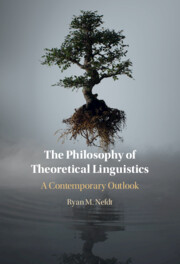Book contents
7 - Computational Approaches to Language
Published online by Cambridge University Press: 25 April 2024
Summary
In this chapter, a case is made for the inclusion of computational approaches to linguistics within the theoretical fold. Computational models aimed at application are a special case of predictive models. The status quo in the philosophy of linguistics is that explanation is scientifically prior to prediction. This is a mistake. Once corrected, the theoretical place of prediction is restored and, with it, computational models of language. The chapter first describes the history behind the emergence of explanation over prediction views in the general philosophy of science. It’s then suggested that this post-positivist intellectual milieu influenced the rejection of computational linguistics in the philosophy of theoretical linguistics. A case study of the predictive power already embedded in contemporary linguistic theory is presented through some work on negative polarity items. The discussion moves to the competence–performance divide informed by the so-called Galilean style in linguistics that retains the explanatory over prediction ideal. In the final sections of the chapter, continuous methods, such as probabilistic linguistics, are used to showcase the explanatory and predictive possibilities of nondiscrete approaches, before a discussion of the contemporary field of deep learning in natural language processing (NLP), where these predictive possibilities are further amplified.
Keywords
- Type
- Chapter
- Information
- The Philosophy of Theoretical LinguisticsA Contemporary Outlook, pp. 157 - 182Publisher: Cambridge University PressPrint publication year: 2024



